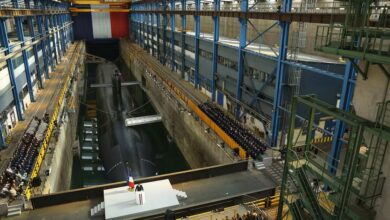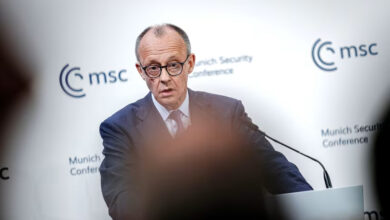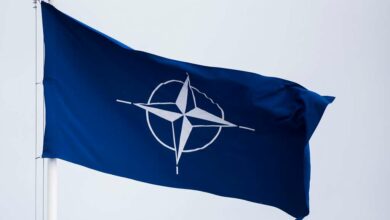Tripoli – NATO's chief on Thursday slapped down a call from Italy for a suspension of hostilities in Libya and tried to reassure wavering members of the Western coalition that Muammar Qadhafi can be beaten.
Italy's ceasefire call exposed the strain on the NATO alliance, nearly 14 weeks into a bombing campaign that has so far failed to dislodge Gaddafi but is causing mounting concerns about its cost and about civilian casualties.
Qadhafi himself sounded a fresh note of defiance with an audio recording, broadcast on Libyan television, in which he called NATO states murderers of innocent civilians and vowed to avenge their deaths.
Asked about Italy's ceasefire call, NATO Secretary General Anders Fogh Rasmussen said in a newspaper interview: "No, on the contrary. We shall continue and see it through to the end."
"The allies are committed to making the necessary effort for a sustained operation," he told France's Le Figaro newspaper.
"We will take the time needed until the military objective is reached: end all attacks against Libyan civilians, return armed forces to barracks and freedom of movement for humanitarian aid."
NATO is operating under a United Nations mandate to protect civilians from Qadhafi's forces as he tries to crush an uprising against his 41-year rule in the oil-producing North African state.
The US, British and French leaders have said they will keep up the pressure until Qadhafi leaves power, but the rebels opposing him are locked in a protracted stalemate with his troops.
Rasmussen said it was no surprise that it was proving tough to break Libya's military and security apparatus.
"We knew he had the military means and financial resources. We avoided a massacre and broke his war machine. NATO has damaged or destroyed 2400 military targets," the newspaper quoted him as saying.
"Today we are seeing opposition troops going on the offensive. I am satisfied with the progress."
NATO CRACKS
At the weekend, NATO acknowledged for the first time in the campaign that it may have caused multiple civilian casualties, when an air strike hit a house in Tripoli.
That opened up cracks inside the alliance that had already been starting to appear because of the length of time the campaign had been under way without producing a decisive breakthrough.
Qadhafi, a canny political operator who will be keen to exploit any rifts in NATO, alluded to the civilian casualties in the audio recording.
"You said, 'we hit our targets with precision', you murderers!" he said. "One day we will respond to you likewise and your homes will be legitimate targets."
Italy lies directly across the Mediterranean Sea from Libya and NATO relies heavily on its military airfields to launch air operations over Libya.
But the Italian government is an uneasy participant in the campaign, with some parts of the ruling coalition opposed outright to military intervention.
"The need to look for a ceasefire has become more pressing," Italian Foreign Minister Franco Frattini told parliament on Wednesday.
"As well as the ceasefire, which is the first stage toward a political negotiation, a humanitarian stop to military action is fundamental to allow immediate humanitarian aid."
Frattini's comments got short shrift from NATO allies. Both France and Britain – the biggest contributors to the air campaign over Libya – rejected anything that would ease the pressure on Qadhafi to step down.
Time is now a crucial factor for both sides in the conflict, with unity in the NATO-led coalition likely to come under more strain and Qadhafi's ability to resist being steadily worn down by sanctions, air strikes and fighting with rebels.
In a sign of the increasing impact of the crisis on daily life, Libyan state media issued instructions that ordinary people should follow to deal with a shortage of fuel.
They called on people to use public transport instead of cars, avoid using air conditioning when driving and stick to 90-100 kph (55-63 mph) as the ideal speed. They also asked Libyans to be patient when queuing at petrol stations.




